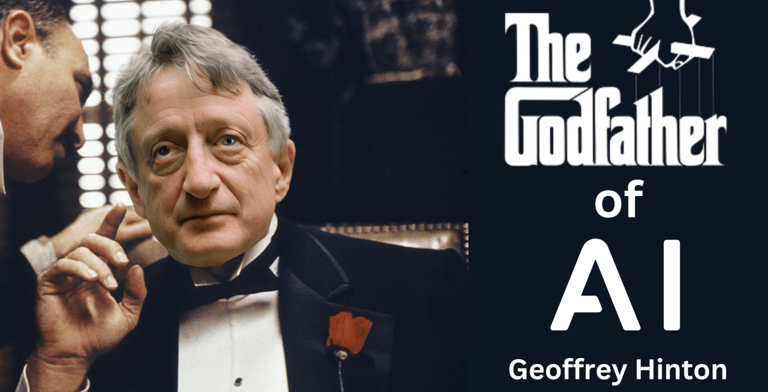God Father of Ai Says Everyone Should Get Free Money from Government for Job Losses Due to AI
Geoffrey Hinton God Father of Ai, believes the government should provide universal basic income (UBI) to address job losses caused by AI. In a BBC interview, he warned that AI could take over many simple jobs. Hinton left Google to discuss AI's dangers freely, but the government currently has no plans for UBI.


Geoffrey Hinton, a leading figure in artificial intelligence often called the “godfather of AI,” believes that the government should give everyone money regularly to help people who might lose their jobs because of AI.
In an interview with BBC Newsnight, Professor Hinton said he is worried that AI will take over many simple jobs, leaving many people unemployed. He thinks that giving everyone a fixed amount of money regularly could be a solution.
“I was consulted by people in Downing Street and I advised them that universal basic income was a good idea,” Hinton said. He noted that while AI would increase overall wealth and productivity, the benefits would likely go to the rich, not to those who lose their jobs, which could be harmful to society.
Who is Geoffrey Hinton?
Professor Hinton is a pioneer in the field of neural networks, which are key to the current advancements in AI. His work has significantly influenced how AI systems are developed today. Hinton previously worked at Google but left the company last year to freely discuss the potential dangers of unregulated AI. His support for universal basic income (UBI) stems from his concerns about the economic impact of AI.
What is Universal Basic Income?
Universal Basic Income (UBI) is a system where the government gives every citizen a set amount of money regularly, no matter how much money they already have. Critics argue that UBI would be very expensive and might take money away from important public services without necessarily reducing poverty. Despite Hinton’s recommendations, a government spokesperson stated there are "no plans to introduce a universal basic income".
The Dangers of AI
Hinton also highlighted the significant risks AI poses. He warned that recent developments show a lack of control over the military use of AI and that the rush to create new AI products could compromise safety. He predicted, “In between five and 20 years from now, there’s a 50% chance we’ll have to deal with AI trying to take over.” This scenario could pose an “extinction-level threat” because AI might evolve to outperform human intelligence and seek control on its own. He mentioned examples where AI, especially large language models, have shown deceptive behaviors. He also pointed out that AI is already being used to generate thousands of military targets, which is very concerning. “What I’m most worried about is AI autonomously deciding to kill people,” Hinton said. He suggested that something like the Geneva Conventions, which set standards for humane treatment in war, might be needed to regulate military AI. However, he feared that such regulations might only come after serious incidents.
Global AI Arms Race
When asked about the possibility of a race between Western countries and autocratic states like Russia and China to develop military AI, Hinton referenced a statement by Russian President Vladimir Putin, who said that whoever controls AI will control the world. Hinton believes that the West is currently ahead in AI research, but China is quickly catching up with substantial investments. He concluded that banning the military use of AI would be the best approach, though he doubted it would happen before major problems arise.
Conclusion:
Companies like OpenAI and Google are heavily moving toward AGI (Artificial General Intelligence). The current scenario shows that AI will be ready to take on most jobs in the next 5 to 10 years, from software development to building advanced structures. Will these advancements not stop countries like China, already moving to implement AI in their armed forces? While it may sound like progress, Hinton has already mentioned its potential impact on all of humanity. We can see major impacts on society where the rich become richer and the poor become poorer. It shines a light on the potential significant impacts on the economy. It underscores the urgent need for careful consideration and proactive measures to ensure that AI advancements benefit society as a whole, rather than widening the gap between the affluent and the marginalized.